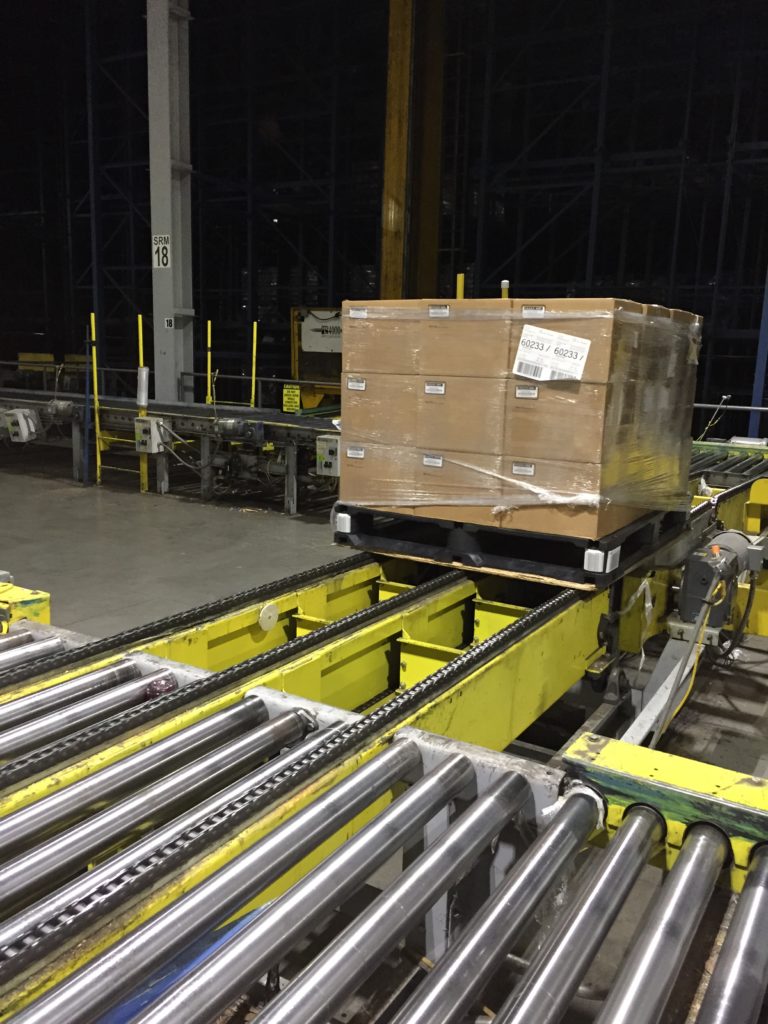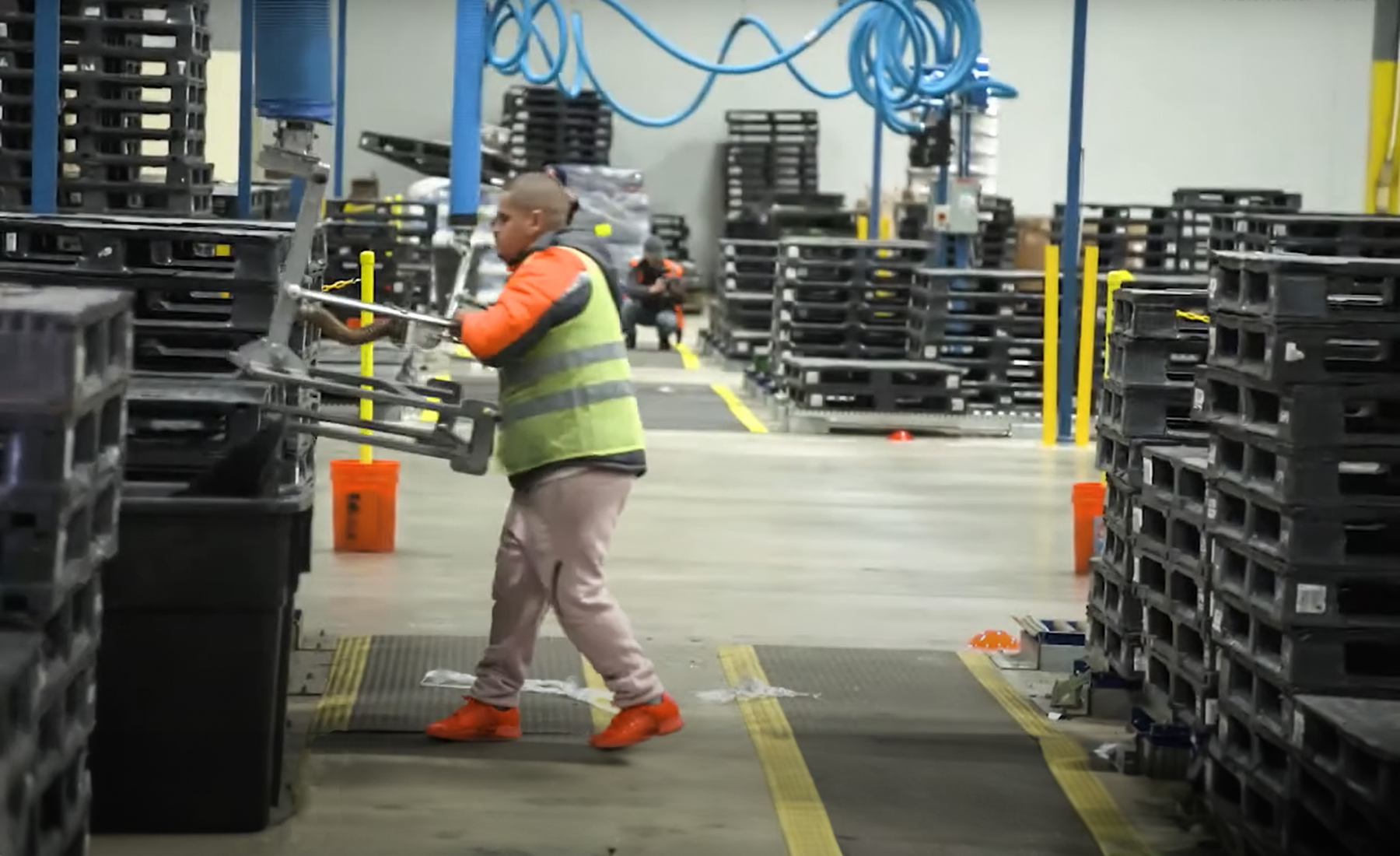There’s a reason most of the large companies you can think of depend on a pallet rental program for the shipping pallets they need to deliver their goods. Pallets are absolutely critical to the supply chain and have been for nearly a century, yet despite this, few companies have mastered the art of pallet management. This isn’t surprising; effectively managing reusable or single-use pallets is a tricky proposition. Tracking down used pallets, replacing lost or broken ones, and procuring new pallets in the quantity and quality needed–and on time, every time, and at the correct place–are time-consuming tasks that can eat into profits and divert resources from your core business.
The Disadvantages of Internal Pallet Management
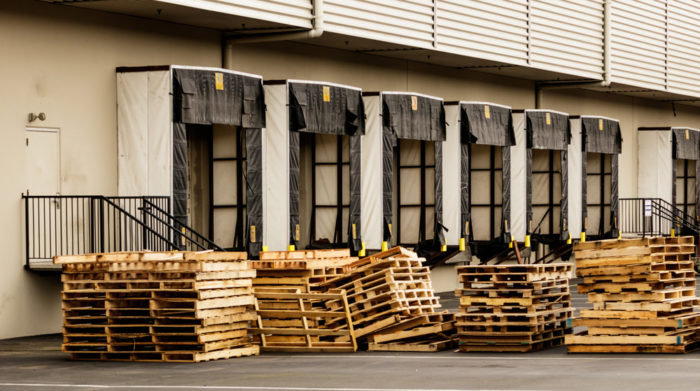 A company’s internal pallet pool is effectively a second business with its own procurement needs, overhead, budget, storage facilities, and supply chain, all of which are subject to different rules and regulations. A few of the many considerations for a company managing its own pallet supply are:
A company’s internal pallet pool is effectively a second business with its own procurement needs, overhead, budget, storage facilities, and supply chain, all of which are subject to different rules and regulations. A few of the many considerations for a company managing its own pallet supply are:
- Storage: When not in use, a company’s in-house supply of pallets must be safely stored in a way that doesn’t constitute a fire hazard. Storage facilities must comply with warehouse racking safety guidelines in order to satisfy OSHA and the facility’s insurance provider.
- Inventory: In order for a supply chain to run without interruption, it’s necessary to have enough quality pallets on hand to meet peak demand. This can be a logistics challenge in and of itself, since large companies may struggle to find a reliable vendor that can produce pallets of sufficient quality in sufficient quantities at the right time.
- Hygiene: Companies must also ensure that the pallets they use meet hygiene standards for the industry. Pallets being shipped across borders should be treated with heat or chemicals to comply with ISPM pallet requirements designed to reduce the transfer of pests between countries. While hygiene standards vary by industry, pallets meant for food and pharmaceuticals should be kept clean and dry to prevent the spread of harmful bacteria and chemicals and to reduce mold and mildew.
- Repair and Replacement: Wood pallets frequently become damaged during use and must be repaired or discarded and replaced. Repair is usually the more costly and complicated option, as it requires a dedicated staff, facilities, and tools to carry out the repairs.
- Retrieval: One big expense of managing reusable pallets is retrieval. A company managing its own pallet pool may actually spend more than the pallet is worth to transport it back to the production site. Pallets are frequently shipped on nearly empty trailers with only a few other pallets. This is one form of deadhead trucking, in which a truck burns fuel without actually transporting product. Even more problematic than the cost of retrieving pallets is the administrative complexity and hassle of finding out where empty pallets are and when they’re available and scheduling their retrieval. The the logistical side of retrieval is so complex that most companies are simply not prepared to take it on.
Managing a supply of pallets effectively means taking on a product line that will never turn a profit.
The factors above are only some of the components that account for the difficulty of effectively managing internal pallet pools. Maintaining a pallet inventory has many costs, and while pallets are vital to a company’s supply chain, they do not bring in a return on their investment like saleable products do. Instead, the cost of pallets is part of a company’s Total Cost of Business (TCOB)–the total expenses, tangible and intangible, of getting products to consumers. Managing a supply of pallets effectively means taking on a product line that will never turn a profit. That’s why many companies turn to pooled pallet rental programs.
Not All Pallets and Pallet Rental Programs Are Created Equal
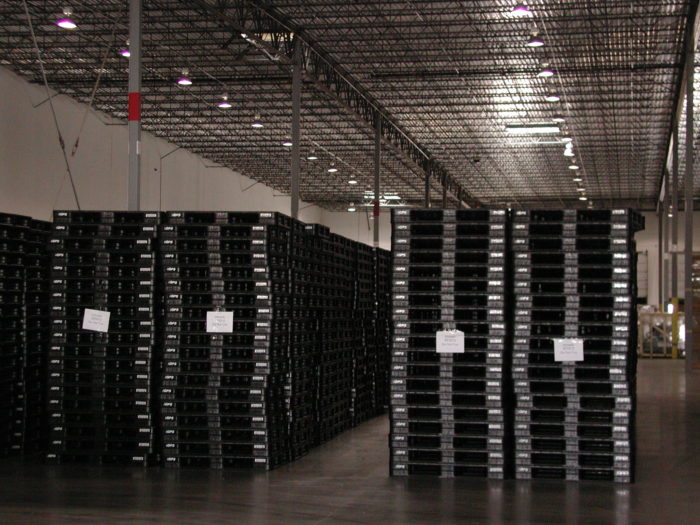 The complexities of managing an internal pallet supply mean that pallet rental programs have become the preferred pallet management strategy for most companies with a national reach. Pallet pooling companies specialize in supplying quality pallets as needed, arranging for the pallets’ recovery and transportation once they reach the end of the supply chain, and repairing and replacing damaged pallets. Despite the popularity of pallet pooling services over the past decades, they are not without their problems. In fact, in spite of the cost and hassle, many companies are considering bringing their pallet management in-house as a result of quality issues with wood pallets.
The complexities of managing an internal pallet supply mean that pallet rental programs have become the preferred pallet management strategy for most companies with a national reach. Pallet pooling companies specialize in supplying quality pallets as needed, arranging for the pallets’ recovery and transportation once they reach the end of the supply chain, and repairing and replacing damaged pallets. Despite the popularity of pallet pooling services over the past decades, they are not without their problems. In fact, in spite of the cost and hassle, many companies are considering bringing their pallet management in-house as a result of quality issues with wood pallets.
At their heart, these quality issues are the result of the material that reusable wood block pallets are made of. Wood fibers degrade due to the action of moisture and microbes. When damaged wood portions of a wood block pallet are exposed to the forces exerted by heavy 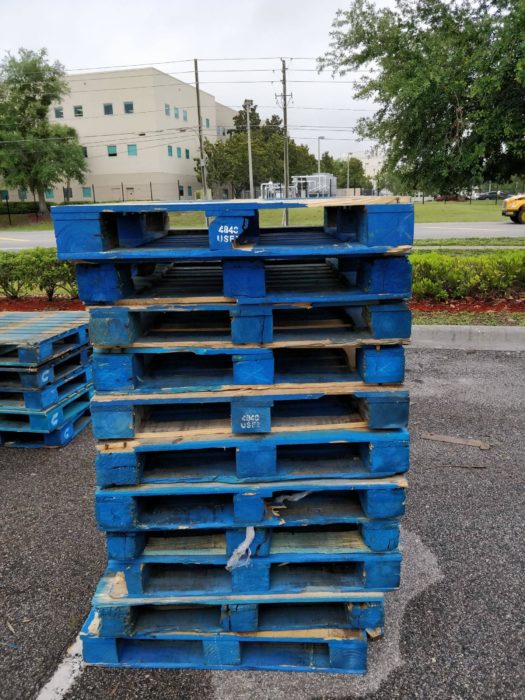 machinery or heavy loads of product and to robust handling procedures throughout the supply chain, the pallets often break or splinter. A damaged pallet is a liability in a warehouse; it may clog automated systems, cause the loss of a pallet of product, or damage product packaging causing safety issues. In fact, the consistent issues with wood pallets have led many retailers to reject loads if they arrive on pallets that don’t meet basic standards and, in some cases, these rejections result in charge backs to vendors.
machinery or heavy loads of product and to robust handling procedures throughout the supply chain, the pallets often break or splinter. A damaged pallet is a liability in a warehouse; it may clog automated systems, cause the loss of a pallet of product, or damage product packaging causing safety issues. In fact, the consistent issues with wood pallets have led many retailers to reject loads if they arrive on pallets that don’t meet basic standards and, in some cases, these rejections result in charge backs to vendors.
These rejected wood pallets often belong to pallet pools. This is simply because wood pallet pooling programs are heavily invested in reusable wood block pallets in spite of their problems and have a financial incentive to keep block pallets in use for as long as possible. These pooling program also do not necessarily maintain their repair program. As a result, wood block pallet pools now contain large numbers of pallets that should have been repaired or even retired long ago, and frustrations with these pallets have led some companies to consider returning to an in-house pallet management model. However, bringing pallet management in-house isn’t a solution to pallet quality issues because it doesn’t address the inherent flaws of wood pallets and it makes companies responsible for their own pallet repair, transport, storage, and replacement. A better and ultimately more cost-effective solution combines the convenience of a pallet pooling service with the advantages of an alternative pallet material: plastic.
Plastic pallets offer advantages over wood pallets in every area: hygiene, durability, strength, weight, and sustainability.
Unlike wood, plastic doesn’t absorb moisture, meaning that it doesn’t rot or break down over time. Plastic pallets are also engineered to precise specifications to provide a consistent light weight and consistent dimensions. They offer advantages over wood pallets in every area: hygiene, durability, strength, weight, and sustainability. The primary reason that plastic pallets haven’t become the pallet of choice for most companies is their cost and the expense of retrieval. The majority of pallet pooling services don’t offer plastic pallets and it can be difficult to retrieve long-lasting plastic pallets from the end of the supply chain.
The clear solution is a pallet rental program that specializes in plastic pallets. Plastic pallet pooling providers offer the durable, easy-to-clean plastic pallets preferred by retailers while managing the delivery, storage, and retrieval of those pallets. The iGPS pallet rental program provides a superior pallet along with a superior pooling service.
The iGPS pallet rental program offers reliable plastic pallets backed by a network of depots in the U.S. and Canada and logistics professionals who specialize in solving shipping platform problems. To switch to a better pallet pooling program, give our team a call at 1-800-884-0225, email a specialist at switch@igps.net, or visit our contact page.
